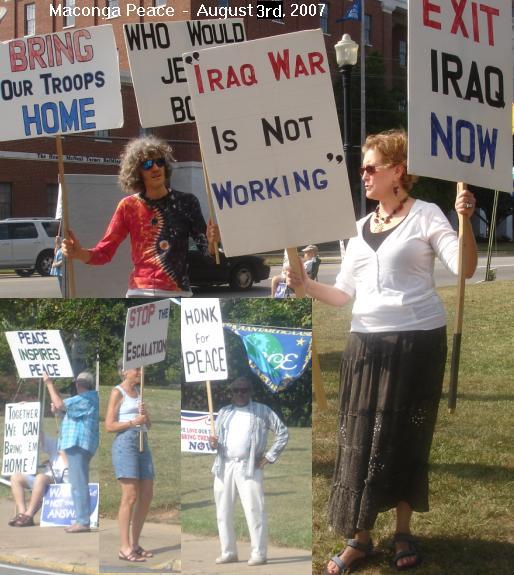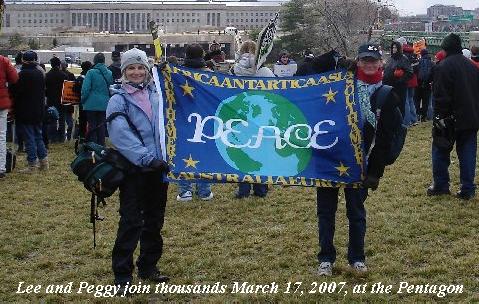|
100 Iraqi civilians, on average, are dying each
day
Posted on Sun, Apr. 22, 2007
What's life worth?
Americans are sissies. The death of 32 innocent students and
faculty
members at Virginia Tech, killed by a deranged student, sends us
reeling. There's 24-hour news coverage. CNN sent everyone but Larry
King to Blacksburg, Va., to be on-site, as did other networks.
On
Wednesday, 230 innocent Iraqis were blown to bits in Baghdad, just
another reminder that killers who are willing to die cannot be stopped,
not by a gun control laws, not by 150,000 heavily armed American
soldiers.
Yes, we're sissies, and thank God. I would never want
our people to be so jaded by death that we take it for granted as a
part of our lifestyle as they must do in Iraq to remain sane.
I
want us to aspire to life, like the students who were calmly studying
in their classrooms before the mayhem; preparing for what they thought
would be a long life ahead.
I've looked at the various memorial
sites. These kids had such bright futures. Such hope and promise. An
environmental engineer here. A history student there. From Georgia we
find a twin, Ryan "Stack" Clark, who was about to graduate with not one
major but three, psychology, biology and English with a 4.0 grade-point
average, according to WLTX in Augusta.
In our sissiness we trip
over the odd. Liviu Librescu, a noted engineering and math professor,
survived Hitler and the Holocaust, but couldn't make it past a rambling
college campus just shy of the West Virginia and North Carolina borders
and one sick student who happened to go to school there.
In our
timidity we should remember that we are not the only people on Earth
who want to live long and fruitful lives. We are not the only ones who
rise each morning worried about our offspring. However, our worries are
miniscule most times. If they're off at school, we wonder whether or
not they ate breakfast or have clean clothes and what time they got in
last night. Our minds have the freedom not to think that they might get
blown up by an improvised roadside device, but now, with Virginia Tech
fresh in mind, we do worry that an insane psychopath might cross their
path.
It is a commonality of the human species: No one wants to
die. In our country, nobody wants to think about dying. There's too
much to live for. Those like Cho Seung-Hui, and other suicidal maniacs,
are like a cancer - cells that don't behave normally. Something in the
DNA misfired. It's beyond most of our sensibilities to even comprehend
such lunacy.
But is it? We do turn a blind eye to the suffering
of others. We look at the death totals in Iraq, the colleterial damage
from our actions, and think nothing of it.
Sure, we worry aboutour
troops and the almost 3,600 souls this wrongheaded effort has taken.
Still, we have some among us who discount even those deaths by
comparing them to the losses we suffered during World War II, as if
that's a valid comparison.
For the most part, we dismiss the pain
of others, even the suffering of our military families. It's out of
sight and out of mind. We feel their pain only superficially. We accept
without complaining that their loved ones will be away an additional
three months after 12 months of hell as the price of volunteering to
protect our worthless carcasses.
Somehow we don't equate the
wails of sorrow we see broadcast from around the world with actual
suffering - until we have a Columbine or Virginia Tech. Even then we
feel our grief is more valid than their's. Here's news: It's not.
With
or without our surge, 100 Iraqi
civilians, on average, are dying each
day. An estimated 70,000 have been killed since our invasion.
They had
families who loved them, too.
We must come to realize that death
is death, and just like the loved ones of the 33 students, including
the killer, who are in mourning today, we should mourn for all innocent
life taken, particularly those taken because of our actions, inactions
or national hubris.
Charles E. Richardson's columns appear Tuesdays and Sundays. He can be
reached at crichardson@macontel.com
or (478) 744-4342
http://www.macon.com/151/story/23923.html
|

